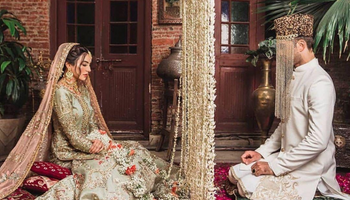What is the Nikah ceremony and is it valid in Ontario? The Nikah is the Islamic marriage ceremony, whereby the Muslim couple legitimizes their marriage in the eyes of God by signing the marriage contract in the presence of an Imam and at least 2 witnesses.
Is this marriage contract valid in Ontario? It could be if the facts support it.
In this case, the spouses were both Muslim and they began dating when they were 16 years old. Their families would not tolerate a sexual relationship outside of marriage and told them that they had to go through an Islamic marriage ceremony. They entered into a Nikah, an Islamic marriage, and then lived together for 7 years until their separation in 2021.
The husband argued that they were not validly married. If he succeeded with this argument, then the wife would have no family law rights to support or an equalization payment.
The wife asked the judge for a declaration that the religious marriage be deemed a valid marriage under section 31 of the Marriage Act.
Section 31 of the Marriage Act provides that:
“If the parties to a marriage solemnized in good faith and intended to be in compliance with this Act are not under a legal disqualification to contract such marriage and after such solemnization have lived together and cohabited as a married couple, such marriage shall be deemed a valid marriage, although the person who solemnized the marriage was not authorized to solemnize marriage and despite the absence of or any irregularity or insufficiency in the publication of bans or the issue of the licence.”
The question the judge had to determine was whether the spouses had ‘solemnized the marriage in good faith’ and ‘intended that the marriage be in compliance with the law in Ontario’.
The judge found that the evidence was that:
- The spouses knew they had to register a licence for a valid marriage in Ontario and chose not to do so
- The spouses knew they were not entering into a valid marriage
- The wife acknowledged that they did not register the marriage in Ontario because the husband would be disqualified from OSAP loans
- The husband did not invite friends to the marriage ceremony because he did not consider it a ‘real wedding’
- The spouses did not identify as being legally married on government documents
- The spouses held themselves out as ‘boyfriend’ and ‘girlfriend’ to friends
- The spouses did not display any pictures from the religious marriage ceremony in their home or on social media
- Following separation, the wife made a complaint to the Canadian Council of Muslim Theologians in which she acknowledged that they had ‘not legally registered the marriage’
- The wife indicated on her mortgage application that she was ‘single
- When the spouses purchased a home, the wife indicated in an email to their real estate lawyer that they were ‘not legally married at this time’ to qualify for a first-time Homebuyer’s Rebate
- On the 2021 census, the wife indicated that she was ‘not legally married’ and was living with her ‘common-law partner’.
- Is it any surprise that the wife’s motion was dismissed and she was not granted any family law rights to support or an equalization payment.
Case Link: https://www.canlii.org/en/on/onsc/doc/2023/2023onsc474/2023onsc474.html
—
At Benmor Family Law Group, our multi-disciplinary team of divorce experts fully understands the emotional and financial impact of divorce. We will help you through separation, divorce, mediation, divorce coaching, and parent coordination, our full-service family law firm expertly supports you, guides you, and represents you – throughout your case.
Share this article on:
